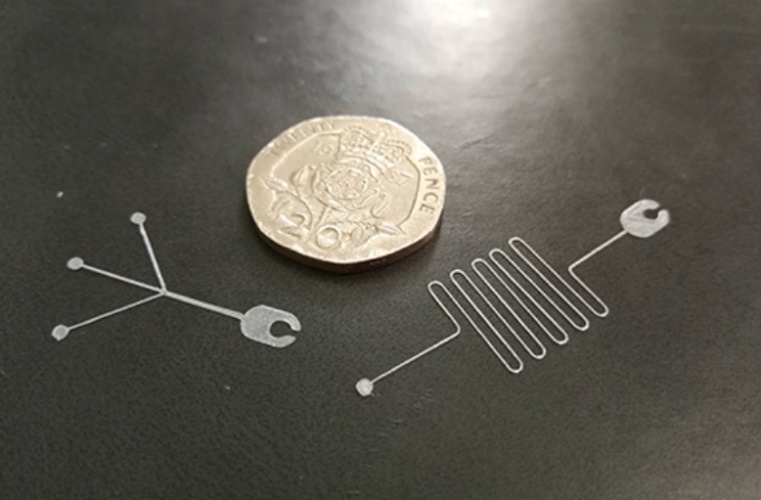3D printing boost for lab-on-chip prototypes
Researchers at the University of Bristol have used 3D printing to accelerate development of lab-on-chip diagnostic systems.
Microfluidic underpin lab-on-a-chip (LOC) technologies for rapid diagnostics, and the shape of the channels are key.
The team at Bristol used low cost 3D printing to produce the soft-lithographic moulds used for fabricating these microfluidic channels down to 100 microns wide. A 5000-piece physical library of mix-and-match channel scaffolds can be printed for less than $0.50.
 “Previously, techniques for producing the soft-lithographic scaffolds/moulds (microfluidic channel patterns) were time-consuming and extremely expensive, while other low-cost alternatives were prone to unfavourable properties,” said Dr Robert Hughes who led the study. “This development could put LOC prototyping into the hands of researchers and clinicians who know the challenges best, in particular those in resource-limited settings, where rapid diagnostics may often have the greatest impact,”
“Previously, techniques for producing the soft-lithographic scaffolds/moulds (microfluidic channel patterns) were time-consuming and extremely expensive, while other low-cost alternatives were prone to unfavourable properties,” said Dr Robert Hughes who led the study. “This development could put LOC prototyping into the hands of researchers and clinicians who know the challenges best, in particular those in resource-limited settings, where rapid diagnostics may often have the greatest impact,”
“This technique is so simple, quick and cheap that devices can be fabricated using only everyday domestic or educational appliances and at a negligible cost around 0.05 percent of the cost of materials for a single microfluidic device. This means researchers and clinicians could use our technique and resources to help fabricate rapid medical diagnostic tools, quickly and cheaply, with minimal additional expertise or resources required,” said researcher Harry Felton.
“It is our hope that this will democratise microfluidics and lab-on-a-chip technology, help to advance the development of point-of-care diagnostics, and inspire the next generation of researchers and clinicians in the field,” said Hughes.
The next step for the team is to identify potential collaborators in both research and education to help demonstrate the impact this technology could have in both settings by developing and supporting outreach activities and applications for on-chip diagnostic testing.
